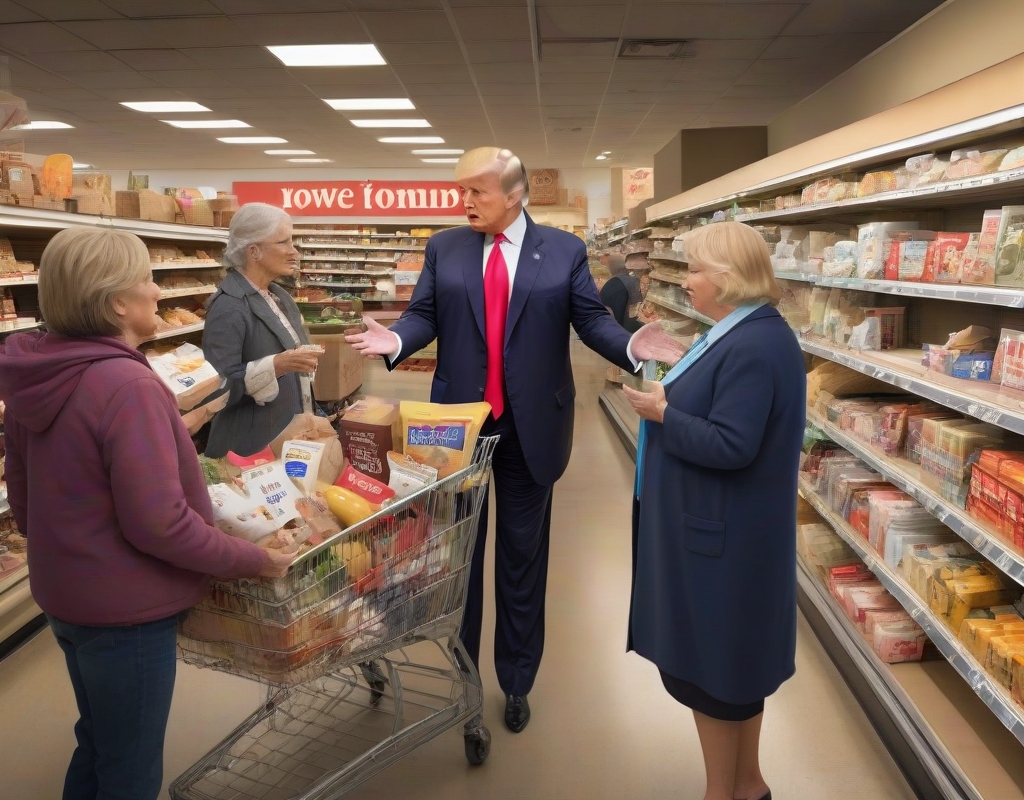Donald Trump, the Republican presidential candidate, recently made headlines during a visit to a grocery store in Kittanning, Pennsylvania, where he paid for a local mother’s grocery bill. His gesture, aimed at easing the burden of inflation for the family, has sparked debate and scrutiny concerning the legal implications of such actions during an election.
While on the campaign trail, Trump entered Sprankle’s Neighborhood Market and presented the mother with $100, remarking that her grocery bill had just decreased by that amount. The woman expressed her gratitude, but Trump’s additional comments to her stirred controversy. He hinted at extending such generosity from the White House, saying, “We’ll do that for you for the White House, all right?” This remark has ignited concerns about the possibility of election interference. Under U.S. election laws, there are strict prohibitions against expenditures made to sway voters’ decisions, with violations potentially leading to fines and imprisonment.
Trump also engaged personally with the mother, discussing her three sons and buying a large bag of popcorn before continuing to a campaign rally. This incident illustrates Trump’s aggressive campaigning and his efforts to connect directly with voters.
Nonetheless, this situation also cautions against actions that might be seen as attempts to influence electoral decisions. While Trump aimed to assist a struggling family, his actions have been met with criticism due to their possible electoral implications.
This episode is a stark reminder that actions taken during campaign activities can carry significant legal and political ramifications, drawing attention to the delicate balance candidates must maintain while interacting with potential voters.




